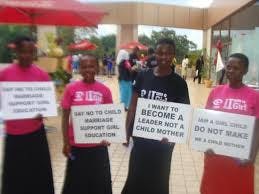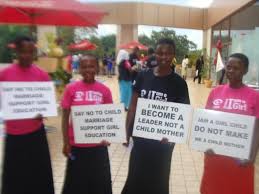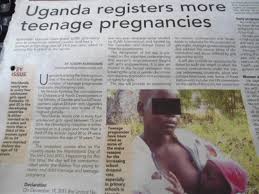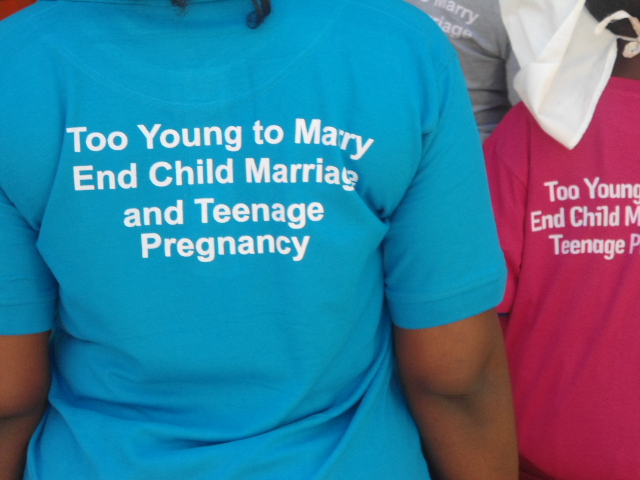Adolescent Caught between Crossroads: Abortion or Marriage?
Jan 21, 2015
Story





Angela Aluka (not her real name) is 18 years old and is in her Secondary school vacation but has just realized she could be five weeks pregnant. Angela sat for her UCE in a local secondary school in her community. I met her during my last visit to Nyero Health Centre III in Kumi district in February where she came to seek service to terminate her pregnancy. One out of every four teenage girls gets pregnant before 19 years of age in Uganda. Angela is one these teenage girls who has fallen victim of this striking statistics. Uganda has one of the highest rates of adolescent pregnancy in Sub-Saharan Africa.
Angela had confided in John (not real name) the Health Assistant who is her relative, But when John learned of my interest in talking to adolescent mothers, he asked me to spare time to talk to Angela. This is an indication that unintended pregnancy and abortion are issues not easily talked about openly and difficult for the victim to come to terms with. I willingly offered to speak with Angela.
By national standards , a health Centre III in Uganda is expected to provide adolescent reproductive health services in youth corners to serve adolescents such as Angela. However, Nyero HC III lacks these services. Research conducted reveals that unplanned pregnancy is the root cause of most abortions. Preventing uintended pregnancy, and thereby the abortions that often follow, would eliminate nearly all injury and death resulting from unsafe abortion (Gutter Marker Institute 2013).
Angela looked worried, miserable, concerned and confused with no clear course of action to take. I warmly asked Angela to openly and sincerely tell me her story. She seemed to have only two options before her. To terminate the pregnancy through an abortion and continue with her education or keep the pregnancy and drop out of school and get married to her boy friend. This was myopic since she had not looked beyond the two solutions she had in mind. Tough!!
I first of all thanked Angela for seeking counsel before taking any drastic action. “You are not the first and this is not the end of the world, dear” I cautioned Angela and went on to give her some background facts about her dilemma. “First of all, abortion in Uganda is illegal. This means that you cannot get abortion services in a government health facility. It also means that, even if you get this done in a private clinic, you will pay a hefty amount of money and it will most likely be done secretively under unprofessional conditions in clandestine environments, which often compromise the safety of the procedure performed. And if it is done there are consequences: it may successfully be conducted but you may be psychologically affected for life”.
Although female adolescents in Uganda still face cultural and social pressure from their families to marry young and begin child-bearing early, adolescent pregnancy outside marriage is frowned by the community. The social stigma associated with pregnancy outside marriage is further compounded when adolescents are forced to terminate their studies and families feel compelled to send their pregnant daughters away. The social stigma and the resulting stress often compromise the health and well-being of pregnant adolescent girls and their unborn babies.
“There is also a possibility that, the abortion may be unsuccessfully and this may lead to complications such as infections, disability including barrenness. If you are found by law performing an illegal abortion, you will be charged by law for 3-14 years in jail, your family and community may even shun you for committing such an unacceptable act” I remember saying.
What emerged from Angela was that peer pressure had enticed her into getting a boy friend. All her friends had boy friends and her elder sisters had dropped out of school and got married. At this moment, she was caught in a fix; get married or risk an abortion!!. Opening up in such sensitive, legal issues is very difficult by people. I built trust for confidentiality from Angela and made her comfortable. She told me that she knew she was pregnant because she had missed her period and she very much wanted to terminate the pregnancy because she did not want to interrupt her studies.
Angela is not alone. Every year, about 297,000 women in Uganda carry out abortions every year and most are unsafe. Fourteen percent of all the unsafe abortions are among young girls aged 15–19 years and the complications resulting from abortions are more serious among adolescents.
However, the second options was to either keep the pregnancy, give birth, breastfeed for 2 years, focus herself and go back to school. The Education ministry in Uganda has a return to school policy which now allows girls to go back to school after delivering. The National Adolescent Health Policy states that pregnant adolescent girls should be readmitted to school after they have delivered, but Uganda’s Education Policy seems silent on this issue. It is not uncommon that school systems still do not offer social support to pregnant girls, but rather send them away.
I also met another teenage mother of 16 years with her six months baby she had brought her for BCG vaccine. She has settled for marriage after dropping out of school in primary five. I advised this adolescent mother to seek Family Planning services since she is capable of giving birth up to 15 children in her reproductive life, live alone the associated risks.
It is common that adolescent girls who become pregnant are often unable to complete a secondary education, a fact that diminishes their potential to find employment and become economically independent. On the other hand, culture is still overriding decisions made. In this part of Teso, once a girl gets pregnant out of marriage, she will definitely be married off to the man/boy who made her pregnant.
Although by the end of our conversation I could see a brighter face of Angela. One month later, I was told that Angela was leaving with her boyfriend who was fined one cow for making her pregnant out of marriage. This means that with some guidance, Angela can still go back to school. All she needs is encouragement and focus to avoid her from resigning to her fate to marriage.
Like many other adolescents, lack of appropriate information on adolescent reproductive health comes out prominently as a critical need. It was so revealing to hear from Angela that myths and misconceptions about sex still exist. Angela told me nobody ever talked to her about her personal reproductive health apart from biology lessons in class they were taught to pass exams. “Not even my own mum ever spoke to me about growing up and sex. Many young people here believe that, as long as you have sex once in a month you can’t get pregnant” She lamented. So, Angela believed in these myths. Stigma, coupled with lack of support from families and society, compels some unmarried pregnant adolescents to seek abortions.
It is very common for girls who get pregnant out of marriage to either be forced to get married to the so called responsible man or drop the man is fined heavily. This reduces a girls chances of going back to school
What next?
Getting pregnant in school is one of the worst things that can happen to an adolescent girls and there is great need for families and communities to support adolescent mothers because they often lack knowledge, education, and skills and income to support themselves and their babies.
Government should through the public-private partnerships scale up provision of adolescent reproductive health services in all health facilities through youth friendly corners to give health information and services to adolescents in communities.
Parents and community leaders need to provide sex education to adolescent so that they can make appropriate decisions regarding their sexuality, such as the work of the Sexual Health Improvement Project with tremendous results. Or else we may never achieve the long term gains of gender equality and empowerment being done today.




